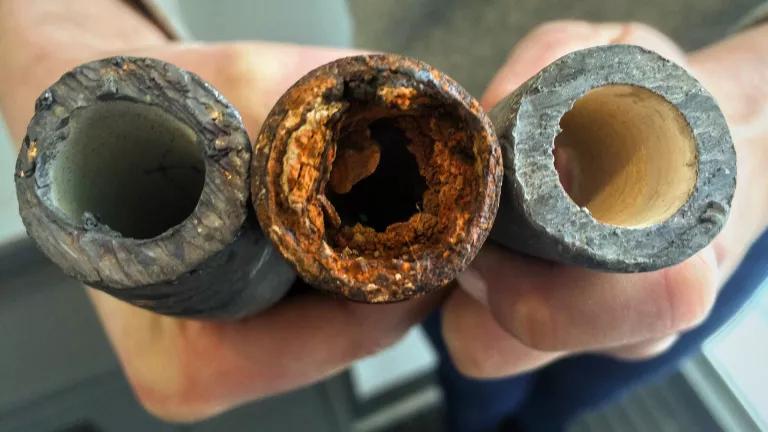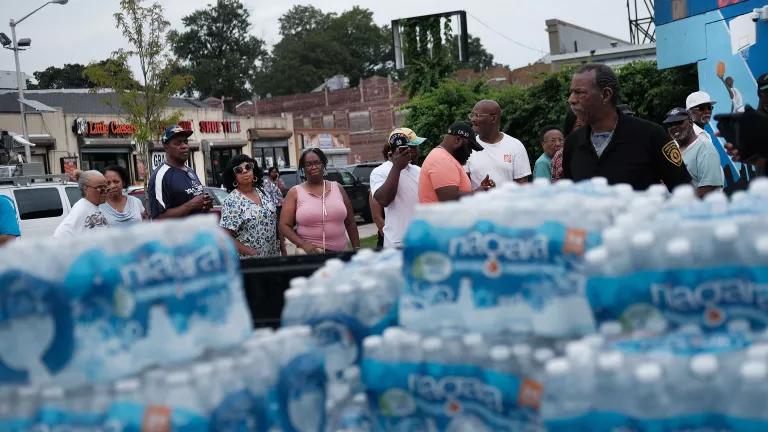Groups Plan Lawsuit in Response to High Lead Levels in Newark's Drinking Water

NRDC and NEW Caucus intend to sue the city, as well as state and city officials, for violating the federal drinking water law.
The lead levels in Newark, New Jersey, are a threat to the city's residents—and city and state officials have failed to take action to address the problem, as required under the Safe Drinking Water Act. This is why NRDC and the Newark Education Workers Caucus (NEW Caucus) announced their intent to sue the city, as well as city and state officials.
Levels of the toxic metal in Newark’s water are some of the highest recently recorded by a large water system in the country. In 2017, 10 percent of water samples collected by the city showed lead levels above 26 parts per billion, nearly twice the federal action level of 15 parts per billion. About 20 percent of the city's samples showed lead levels above the 15 parts per billion federal action level—with some samples coming in at three, even nine times higher. Particularly concerning is that Newark has had the greatest number of lead-poisoned children in New Jersey for years, and testing revealed that 30 public schools recently had elevated lead levels in their drinking water.
“Newark’s lead levels are shockingly high," said Sara Imperiale, an environmental justice attorney at NRDC. "Safe drinking water should not be a luxury. Access to safe drinking water is particularly important in low-income communities of color, where residents often face multiple sources of exposure and stressors on their health from environmental burdens.”
Lead exposure has serious and irreversible health impacts, like fertility problems, nervous system damage, and cognitive dysfunction, among other issues. Pregnant women and children are particularly vulnerable. There is no safe level of lead exposure. “This is a serious violation of the public trust,” said Yvette Jordan, a Newark resident and member of NEW Caucus. “I’m concerned about my health and what this exposure means for my students, since even low levels of lead can impair children’s brain development.”
NRDC and NEW Caucus point out multiple ways the city is violating the law, such as selecting testing sites that were less likely to have high lead concentrations, failing to properly control pipe corrosion, failing to evaluate the materials in their water system (including the failure to prepare an inventory of its lead service lines), and not providing its residents with information on the health effects of lead, or how to get tested.
“It's unacceptable that the city and state would consider providing billions of dollars in tax breaks to welcome corporations to Newark while failing to address health-threatening infrastructure issues like this for its residents,” said Al Moussab, a resident of Newark and the president of NEW Caucus.



